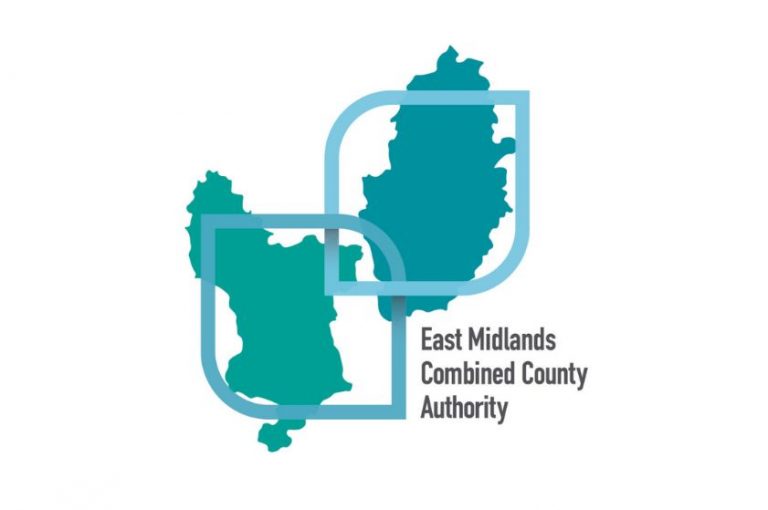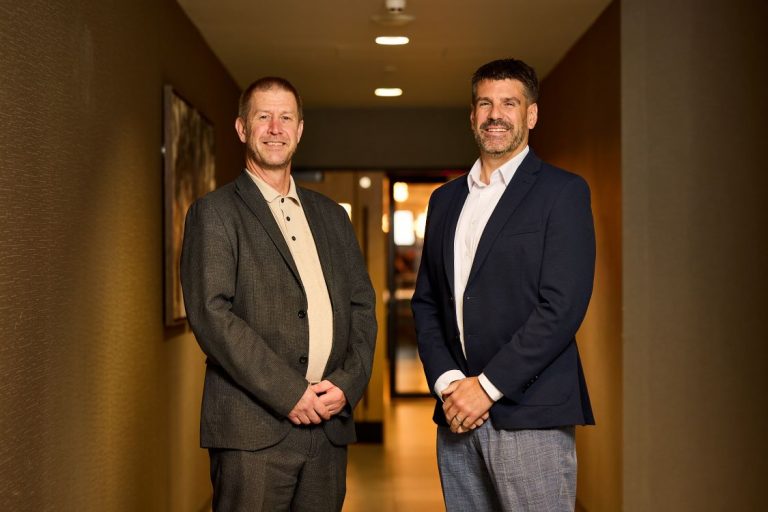Thursday, August 21, 2025
Kyla Bellingall, Regional Managing Partner at BDO in the Midlands, has welcomed BDO UK’s new Managing Partner who begins his new role today [1 Oct 2024] restating the firm’s commitment to the mid market.
Describing the mid market as the ‘economic engine’ powering UK growth, BDO UK’s new Managing Partner, Mark Shaw, praised the impact these businesses have on growth, skills and employment in the region and across the country.
In the Midlands, there are more than 4,000 mid-sized businesses generating £224bn in revenues. UK-wide, the mid market is responsible for one in three private sector jobs and has revenues equivalent to half the value of UK GDP.
Mark also used his day one message to emphasise the importance of regional offices to BDO’s future success.
“We are proud of our regional network and the knowledge and market understanding of those who work there. Our close connection to local markets allows us to make a difference to regional growth benefiting local economies,” said Mark.
Today also marks the commencement of a new Leadership Team at BDO, which includes Midlands Managing Partner, Kyla Bellingall. Kyla’s national leadership team role sees her responsible for the strategic direction of regions, markets and sectors for the firm.
Kyla has more than 25 years’ experience having joined the profession as a school leaver apprentice. She joined BDO as an Audit Partner in 2015.
Commenting, Bellingall said: “The growth of our Midlands practice is a reflection of BDO’s growth and investment as a firm overall. Our core market of mid-sized, ambitious and entrepreneurially-spirited businesses has demonstrated strength and resilience during a challenging economic period.
“It is an exciting time for Mark, and I am delighted to be part of the new Leadership Team with a firm focus on the regions, where we will collectively build on our heritage while looking to the future.”
Mark Shaw, BDO Managing Partner, added: “I look forward to working with our talented partners and colleagues to achieve balanced growth over the coming years; one that puts serving the public interest, our culture and the wellbeing of our people at its heart.”
Mark takes on the role at an exciting time for BDO. The firm, which has 18 offices across the UK and employs 8,000 people, is fast approaching the £1bn revenue milestone. This has been done through controlled growth across all parts of the firm.
Last year, BDO also invested £120m back into the business – the largest annual investment in the firm’s 100-year history.
A new board that will strengthen links between businesses and East Midlands Combined County Authority is recruiting members.
Representatives from businesses of all sizes across the East Midlands can submit their interest in joining the Business Advisory Board until Friday 11 October.
The board will provide strategy, advice and guidance to the main EMCCA Board, EMCCA’s committees and Mayor Claire Ward, helping to ensure the experience and knowledge of regional businesses is harnessed when making decisions around the economy, skills, transport, housing and the transition to net-zero.
The Business Advisory Board, chaired by David Williams, Chairman of Geldards, one of the UK’s leading law firms, will meet at least four times a year to shape policy and engage with wider stakeholder networks and activity. Mayor Claire will sit on the Board to hear the voice of business first-hand.
The new East Midlands Combined County Authority (EMCCA) has more powers, more funding and more control devolved from Westminster. Covering Derby, Derbyshire, Nottingham and Nottinghamshire, it is uniquely placed to put the region first, speak with a strong voice and exercise powers to boost the region.
The Business Advisory Board will have 16 members from the private and public sector and East Midlands Chamber of Commerce. Private sector representatives will include experts from large businesses, small and medium enterprises and sectors with a significant chance of attracting further investment.
Members of the Board will be expected to have a good understanding of the East Midlands region and the business sectors that operate within it, experience of leadership roles in business and understand the challenges faced by businesses.
Anyone interested in joining the board must apply by Friday 11 October. There will be a shortlisting process and interview panel for applicants in the second half of October.
Hydrogen power unit producer GeoPura, with hubs in Nottingham, Sheffield, Matlock, and Newcastle, has raised £22 million to accelerate its expansion plans.
This announcement builds on momentum from a £56m investment round in February 2024 and a £36m Series A funding round in February 2023, welcoming investment from Siemens Energy, General Motors Ventures, Barclays Sustainable Impact Capital, Swen Capital Partners, and the UK Infrastructure Bank. This brings total capital raised to £114m over the last two years.
Derek Bulmer, CFO of GeoPura, said: “Securing this debt funding is a pivotal milestone in our journey to build a global fleet of over 3,600 HPUs, which will require over £2.5 billion in capital over the next decade.
“This funding will not only accelerate our expansion but also drive significant reductions in carbon emissions and improve local air quality while contributing directly to the UK’s net zero targets. Partnering with world-class debt funders like BNP Paribas Leasing Solutions, Close Brothers, HSBC UK and Siemens Financial Services is critical to delivering this vision and achieving these goals.
“This milestone supports our commitment to a cleaner, healthier future and underpins the vital role of sustainable finance in advancing global environmental goals.”
East Midlands Chamber says the closure of Ratcliffe-on-Soar power station is an opportunity for the region to continue to lead on Green Growth, but government support is needed.
The site is to cease producing energy today (30th September).
Director of Policy and Insight Richard Blackmore said: “Having powered millions of East Midlands homes for nearly six decades, the steam from Ratcliffe-on-Soar’s towers is a familiar site, whether you fly into East Midlands Airport or drive along the M1, but the continued transition toward reduced greener energy cannot wait.
“Reduced carbon emissions and more sustainable energy production take us closer toward reaching Net Zero, will boost employment and the economy through Green Growth. The East Midlands has development projects underway looking at nuclear fusion, nuclear fission and hydrogen; we have the UK’s only inland Freeport and extensive research is carried out at the region’s universities into future energy technology, but support from the new government is needed.
“With the Autumn Statement fast approaching, it’s essential that priority is given to backing low carbon projects like solar, wind, and small modular nuclear reactors; we need funding for energy storage and grid modernisation and Net Zero initiatives need to be properly incentivised so that the East Midlands can be firmly established as a leader in clean energy.”
Moorfield Group, the UK real estate fund manager, has completed construction of its 293-bed, £45m PBSA scheme in Lincoln.
The scheme, named BGU Student Village, includes townhouses and cluster flats across almost 90,000 sq ft and seven buildings ranging from one to four storeys, as well as landscaped gardens and leading sustainability credentials – including a +10% Biodiversity Net Gain.
Bishop Grosseteste University (BGU) Student Village is being delivered as part of a development agreement with Melberry Developments, with Bowmer and Kirkland as contractors. The development, which took 15 months to build, is ready to welcome students from BGU.
The scheme has delivered positive social impact, with the local workforce, suppliers, and education providers engaged in the development process. This included 76 hours of education for local students and 130 weeks’ worth of work experience for architecture students from the University of Lincoln.
Bowmer and Kirkland estimates that the social, economic, and local value realised by the scheme’s development amounts to £2.6m.
Charles Ferguson-Davie, Co-CEO and Chief Investment Officer at Moorfield Group, said: “Student housing is a sector of strategic focus for us, with the investment case supported by structural and demographic demand drivers, as well as the undersupply of fit-for-purpose accommodation.
“BGU Student Village will help to plug this gap, with the sector offering those with proven and long-standing expertise the opportunity to fund development and to refurbish existing purpose-built schemes as well as student houses of multiple occupation (HMOs).”
David Sarson, Managing Director at Melberry Development Management, said: “After our successful work together on Enso, the completion of BGU represents yet another vindication of the quality of product produced by Moorfield and Melberry’s development partnership.
“With a conscientiously thought-out amenity offering and best-in-class sustainability credentials, the scheme is all set to provide this generation of Lincoln’s students with high-quality accommodation they can be proud to call home throughout their educational journey.”
Bishop Grosseteste University Chancellor Dr. Tracy Borman, said: “We are thrilled to open the Student Village, which will significantly enhance the university experience by fostering a vibrant and supportive community close to our campus.
“This development is a key part of BGU’s broader growth plan, complementing our existing on-campus accommodation. It’s wonderful to see it all come together, ready to welcome our students to their new homes very soon.”
Caddick has appointed John Currie and Ian Calder to head up its operations team for its growing construction division in the Midlands as the business’s project pipeline in the region hits £250m.
John and Ian join Caddick just over 12 months after it launched its presence in the Midlands construction market following the appointment of Ray O’Sullivan as Regional Managing Director in July 2023.
Fulfilling a remit to oversee the operations of Caddick’s construction division in the Midlands, John and Ian will be involved in all aspects of pre-construction and project delivery for the business’s growing pipeline.
John’s remit will include the operational delivery of the business’s high-rise residential development projects and Ian’s remit will include the region’s broader project base, including commercial, low-rise residential and industrial.
Previously Operations Director for Wates in the North West, John brings 30 years of experience to his new role having started his career as a Site Engineer in Yorkshire, later joining Carillion as a Project Manager in 2005.
Project highlights throughout John’s career include Manchester’s One St Peter’s Square and Beetham Tower, where John led the delivery of the residential floors of the city’s first skyscraper.
Ian started his career as a Site Engineer at Bullock Construction after obtaining a degree in Construction Management at Sheffield Hallam University. Throughout his career, Ian has held a number of senior operational roles for Midlands-based contractors, including Wates and Seddon Construction.
More recently, Ian has spent seven years at Speller Metcalfe where he was based in Wolverhampton, holding the position of Operations Manager and overseeing the business’s project delivery across the Midlands.
Ian said: “I’ve had a varied career delivering and overseeing projects in a number of different sectors from residential to commercial, industrial and public sector development across the Midlands, and I enjoy nothing more than getting out on site and being hands-on in achieving high standards. For me, my work environment is very important, and there is a really positive culture at Caddick.
“The business has a very strong reputation, and it has seamlessly introduced itself as a very strong player in the Midlands. I’m very excited to become part of the team as Operations Manager for the Midlands, and look forward to working alongside John.”
John added: “I am really excited to join Caddick, and particularly to be bringing my experience to help grow the business’s capability in high-rise development. Caddick is a family business with strong capabilities and an excellent health and safety culture, and the business is full of operationally focused people who know how to build, and know how to do it to a high standard.
“The market is changing, and there is a real need for a strong and financially stable contractor that can meet the needs of the pipeline. I’m really energised by the opportunity to lead the operations of our Midlands business, and to be working with colleagues in our other regions to build our high-rise capabilities.”
As Operations Director, John will also have a wider remit to bolster Caddick’s growing portfolio of high-rise residential work across Yorkshire, the North East and North West, drawing on his experience as Project Manager for Manchester’s Beetham Tower.
Ray O’Sullivan, Regional Managing Director of Caddick’s Midlands construction division, said: “The Midlands market has responded extremely well to Caddick as a new presence; we have a number of high profile projects on the ground and a healthy pipeline for the coming year.
“Our intention was always to offer clients and the supply chain a strong, financially stable and capable construction partner to give certainty of quality and delivery, and welcoming John and Ian will strengthen this commitment considerably.”
Streets Chartered Accountants considers potential tax and pension changes in the Autumn Budget and more in its latest monthly news roundup.
Five key areas of possible changes to Pensions in the Autumn Budget
Little has been said by Labour on what the budget will contain. We are led to believe there will be change and upheaval, barring a significant leak we won’t know though until 30th October. There are plenty of rumours around pensions and in the King’s speech, a commitment to a “pensions review”. What this means in the longer term, time will tell although there are five key areas which may be looked at within this review and as part of the budget in October. Read More.
Changes to Tips & Service Charge Rules
As of 1st October 2024, new legislation will change the way businesses manage tips. Here’s what you need to know to ensure compliance and avoid penalties. The new law mandates that all qualifying tips – whether received via cash or card – must be fairly distributed to staff. You can no longer withhold tips and the allocation must follow clear, objective criteria. The government has issued a statutory code of practice to guide this process. Read More.
Pre-Budget Personal Tax Update – the times they are a changing
The October budget is right around the corner. It could bring major changes to a whole range of estate planning taxes, especially Inheritance Tax (IHT) and Capital Gains Tax (CGT). Set down are some thoughts, identifying possible changes that might be on the way and how they might impact on your personal wealth and the financial well-being of your family. If you’re serious about protecting your wealth, it’s time to brace yourself. Read More.
Income Tax Reform
Over the coming years there are some significant changes happening to income tax. Whilst these may not appear in the headlines, as they are not direct changes to tax rates, thresholds or reliefs, they are nevertheless significant and need to be understood and planned for. In advance of the MTD introduction, another change is already underway. Read More.
Podcast: How might a new government affect your personal financial planning?
In this episode of The Streets Sessions, Streets talk to Sam Tindale, Financial Adviser and Managing Director with Tower House Wealth Management, about how the new Labour government might impact personal financial planning including pensions, investments, IHT planning, paying school fees and more. Listen Now.
Grants spotlight: new grant opportunities – September 2024!
Continuing the success of Streets’ dedicated Innovation Grants Consultancy, headed by Chris Parkhurst, they are excited to share with you some new grant opportunities that are now available. These include Contracts for Innovation, Biomedical Catalyst 2024 and Sustainable Medicines manufacturing innovation. There are also still live opportunities in the Defence sector and more general sectors with Smart grants and Innovation loans. Read More.
Taxes Made Easy
This guide is designed to provide you with an overview of the key tax rules from seven perspectives – that of the family; the employee; the person running their own business; the taxation of investments; disposals and CGT; property matters; and, finally, the potential liability on your estate at death. Please use the guide to help you identify planning opportunities, pitfalls to avoid and areas where you may need to take action and then contact Streets for further advice. Download Now.
Family Company Estate Planning Reviews
Planning for succession is a major concern for many families, particularly in the context of thriving family businesses and farming interests. Identifying the right approach is becoming increasingly essential.
Is it time to consider succession and intergenerational planning for your family business? Could you benefit from a conversation? Download Now.
Social enterprise Places for People has launched a new training movement and delivery programme seeking to tackle the UK’s trade skills crisis and boost the future workforce of the housing sector.
The landmark scheme, called PFP Thrive, will deliver tailored and comprehensive training modules for the UK housing and construction sectors, with a brand-new training academy centre opening in Summer 2025.
Delivery programmes part of PFP Thrive will focus on the traditional and new skills needed by the housing sector to most effectively repair and maintain its customers’ homes, deliver its shared housebuilding programme, meet its retrofit goals and accelerate the development of individuals – both new and longstanding – within the industry.
PfP Thrive will also provide compliance training, apprenticeship and leadership development courses to meet the evolving needs of the sector workforce.
Operating from 20 sites across the UK PfP Thrive aims to train over 200 apprentices and over 1000 people in technical courses in its first year. The programme’s central hub and new academy building will be in Derby and will welcome its first apprentices from Autumn 2025.
Commenting on the launch of PfP Thrive, Greg Reed, Group CEO of Places for People, said: “Today marks the next major milestone in our relentless journey of innovation and ambition in helping Customers, Communities and the wider sector to thrive.
“PFP Thrive is so much more than just training provision. It’s about progress, growth and success – core values which embody our wider purpose to create and support thriving Communities, and which will bring to life dynamic learning opportunities to support our industry and provide our current workforce with the quality learning they deserve.
“We’re not just building skills, we’re building futures – for our People and the entire sector. We’re incredibly excited and this is just the beginning.”
Tom Arey, Director of PFP Thrive, added: “The housing crisis has been hanging over us for far too long but we also have a more recent threat staring us in the face – a worsening skills shortage which is damaging our ability to deliver today and putting at risk what we know we have to deliver in the future.
“By 2032 more than 565,000 time-served skills tradespeople will retire from the industry, leaving a gaping hole of some 50,000 electricians, 45,000 carpenters and 40,000 plumbers – just to mention three critical disciplines. This doesn’t even consider the skills we need to retrofit our homes and the use of new technology or innovations that are coming down the track.
“PFP Thrive is here to tackle the industry’s growing skills shortage, preparing the next generation of ambitious professionals who are fired up and ready to grow. Our brand-new Training Academy and provider will empower People, grow skills, and shape the future of the housing industry for generations to come.”
DSP, a specialist database, cloud and applications managed service provider, has chosen Oberoi Business Hub in Pride Park as its new regional office.
DSP, which also has UK offices in London and Leeds as well as bases in Dublin, USA and Canada, has relocated its sales and marketing function, and some of its technical function, to serviced offices at Oberoi Business Hub in Pride Park.
DSP head of business operations John Cronshaw explained: “We were previously based in leased offices in Nottingham but were looking for a new regional base to accommodate the growing number of employees who are returning to the workplace having previously worked remotely.
“Oberoi Business Hub is the ideal solution for our sales and marketing team which is a particularly collaborative function within our people-first culture as well as some of our technical delivery.
“It is easily accessible by road and rail and provides excellent facilities and office accommodation with flexible options for the future.”
Oberoi Business Hub manager Jodie Brady continued: “We are proud to have been able to respond quickly to DSP’s requirements and facilitate a smooth transition for the team – proving from day one that our goal is to take care of the details so that businesses can concentrate on their own operations.”
Founder and managing director Kavita Oberoi OBE concluded: “DSP’s relocation to Oberoi Business Hub reflects the growing requirements for businesses of all sizes to have high quality serviced office accommodation with a prestigious business address.”
Vistry Group, the provider of affordable mixed-tenure homes, has been given the green light to build 763 much-needed new homes at Top Wighay, Nottinghamshire with almost £6m committed to bolstering local services.
Situated approximately 2km north of Hucknall town centre and to the east of Annesley Road (A611), the £191m development, granted outline planning permission in April 2021, is part of Nottinghamshire County Council’s (NCC) flagship mixed-use scheme. The 86-acre site, contracted in 2023 with NCC and earmarked for development for more than a decade, will also include 21 acres of employment land, a local centre with retail offering and a new primary school.
The East Midlands Vistry team is poised to start work on the 763 two-, three-, and four-bedroom homes, maisonettes and apartments. Of the new homes, 269 will be much-needed affordable properties, 97 will be available through PRS providers and 397 will be on sale on the open market through Vistry’s Linden, Bovis and Countryside brands.
In addition to new housing, the development will also offer benefits to the wider community, with £4m earmarked for future investment and £6m designated to bolstering local services. This includes £436,000 towards healthcare, £4,750,000 for education and £800,000 for highways and bus improvements.
The benefits also include new parks, sports facilities, wildlife corridors, pedestrian and cycle routes, a new primary school, and an on-site Skills Academy in partnership with Chameleon School of Construction. This innovative training initiative will aim to encourage local people not in employment or training back into work.
Andy Reynolds, Managing Director of Vistry Group’s partnerships division in the South East Midlands, said: “We are delighted to have secured reserved matters planning consents which enable us to start work on these much-needed new family homes at Top Wighay. Over the past year we have consulted with the community to finalise the details of the scheme and ensure it meets local people’s needs.
“Our team cannot wait to start building a fantastic community of high-quality properties for people in the area to call home.”
Work is expected to start on site in spring 2025.












